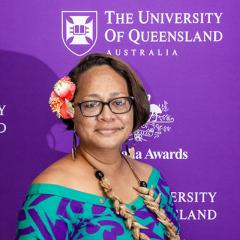The Association of Southeast Asian Nations’ (ASEAN) Member States are rich in a variety of mineral resources, discovered and undiscovered, and are benefiting from rapidly growing investment and trade in the sector. If this trend is to continue, ASEAN must maintain a modern framework for cooperation that ensures Member States’ and ASEAN partners can implement effective and sustainable approaches in minerals development and promote investment and trade.
The ‘Strengthening ASEAN Cooperation in Minerals’ project
This project is taking a two-part approach to facilitating trade and investment in minerals and deepening their contribution to ASEAN economic integration: a review of current minerals sector cooperation within ASEAN, and the scoping of an enhanced ASEAN minerals database information system to support minerals cooperation. The outputs will provide options for the next phase of the ASEAN Minerals Cooperation Action Plan (AMCAP).
What is the ASEAN Minerals Cooperation Action Plan (AMCAP)?
AMCAP, launched as ‘AMCAP-I’ in 2005, is the strategy through which ASEAN envisions creating a vibrant and competitive mineral sector for the well-being of the ASEAN people. ‘AMCAP-III: 2016-2025’ is the current iteration of the plan. It covers four strategic areas:
- facilitating and enhancing trade and investment in minerals;
- promoting environmentally and socially sustainable mineral development;
- strengthening institutional and human capacities in the ASEAN minerals sector; and,
- maintaining an efficient and up-to-date ASEAN minerals database.
The Approach
The first part of the project, a review of current minerals sector cooperation, involves a study of how cooperation can be further developed within ASEAN in the context of global markets and sector developments. The objective is to increase investment and trade in minerals. The study is also considering regional and global minerals sustainability frameworks and will recommend how sustainable minerals development can be incorporated into all areas of cooperation.
Part two of the project, scoping a design for an enhanced ASEAN minerals database information system (AMDIS), aims to facilitate investment in exploration and sustainable development of minerals in ASEAN. SMI and its collaborators are providing the scoping and analysis necessary to support design, enhancement and effective maintenance of the enhanced AMDIS. This will involve updating or replacing current systems to yield more relevant content, better information management and to be an efficient platform, which is more responsive to ASEAN’s evolving needs, notably becoming more competitive in attracting exploration investment.
The Impact
The project’s recommendations are expected to help define the future priorities and direction of ASEAN minerals cooperation. The development of an effective ASEAN minerals database has consistently been recognised in all AMCAPs as crucial to ASEAN minerals cooperation itself and to facilitating much needed investments to flow into minerals exploration and development in the region. It shall also enable policymakers in the ASEAN minerals sector to take strategic directions in strengthening cooperation for mineral development in the region. In the long-term these developments may also provide employment opportunities and support community development.
To address the potential harmful ramifications of an increased minerals sector presence, the project emphasises the promotion of sustainable mineral sector development through better monitoring, sharing of best practices, and promotion of sustainable standards adoption.
Project partners
Researchers from The University of Queensland are collaborating with the Energy and Minerals Division of the ASEAN Secretariat and the ASEAN-Australia Development Cooperation Programme II.
Related projects
Low-Carbon Cement Adoption in the Pacific Region-Limestone Calcined Clay Cement (LC3)
The DELVE Exchange: The Role of Artisanal and Small-Scale Mining Networks During COVID-19
Finding alternative sources of sand – mine tailings
Read original article by the Sustainable Minerals Institute (SMI)
UQ International Development collaborated with SMI to deliver this project.



